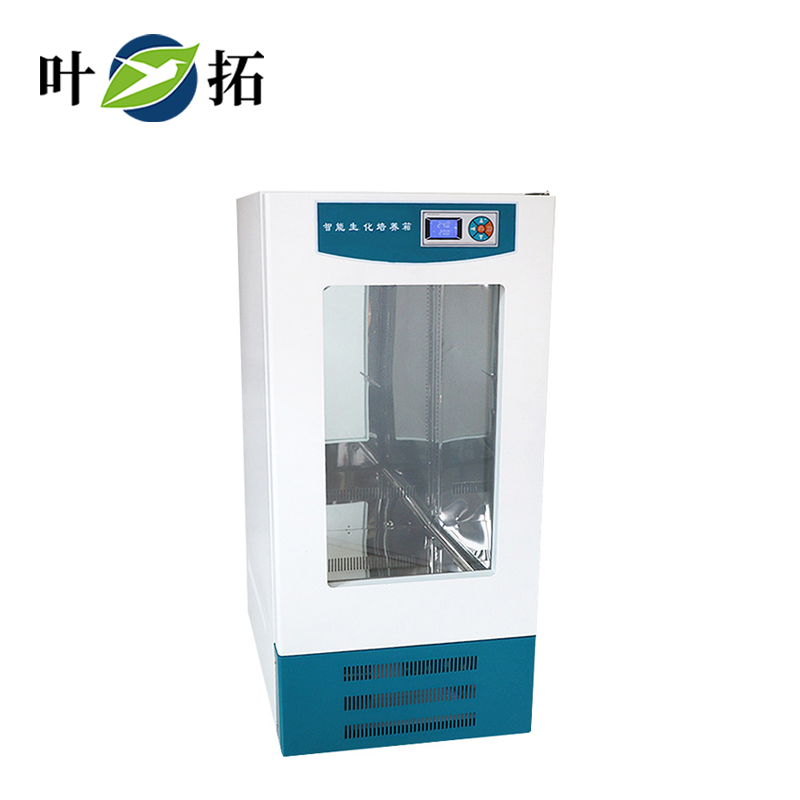
Shanghai Yetuo Biochemical Incubator, Mold Incubator, and Constant Temperature and Humidity Incubator are commonly used cultivation equipment in laboratories. They have some differences in function and application. The following are their main differences:
1. Function:
Biochemical incubator: Biochemical incubators are mainly used for cultivating and incubating microorganisms, cell culture, and other biological experiments. It provides stable temperature control and typically has the ability to adjust parameters such as temperature, humidity, and vibration to meet the needs of different experiments.
Mold incubator: Mold incubators are specifically designed for cultivating molds and fungi. They typically provide higher humidity control capabilities to meet the specific humidity conditions required for mold growth. In addition, some mold incubators may also have functions such as ultraviolet lamps and filters for disinfection and air purification.
Constant temperature and humidity incubator: A constant temperature and humidity incubator is a type of cultivation equipment that can simultaneously control temperature and humidity. They are commonly used in experiments that require precise control of the culture environment, such as cell culture, tissue engineering, etc. The constant temperature and humidity incubator provides stable temperature and humidity control to ensure good growth conditions for biological samples.
2. Control ability:
Biochemical incubator: Biochemical incubators usually have temperature control capabilities and can be adjusted over a wide temperature range. Temperature control is typically achieved through heating and cooling systems to maintain stable temperature conditions.
Mold incubator: In addition to temperature control, mold incubators also pay special attention to humidity control. They typically provide a higher humidity range and more accurate humidity control to meet the growth requirements of mold and fungi.
Constant temperature and humidity incubator: The constant temperature and humidity incubator can simultaneously control temperature and humidity, and provide stable control. These devices are typically equipped with advanced temperature and humidity sensors and control systems to maintain a constant cultivation environment.
3. Application scope:
Biochemical incubator: Biochemical incubators are widely used in laboratories in microbiology, cell biology, biochemistry, and other fields. They can be used to cultivate microorganisms such as bacteria, fungi, yeast, as well as for cell culture and bioreactor operations.
Mold incubator: Mold incubators are mainly used for cultivating and studying molds, fungi, and other microorganisms. They have important application value in fields such as pharmaceuticals, food, and environmental science.
Constant temperature and humidity incubator: Constant temperature and humidity incubators are commonly used for experiments that require accurate control of the culture environment, such as cell culture, tissue engineering, seed germination, etc. They provide more accurate and stable temperature and humidity control to meet the requirements of specific experiments.
There are some differences in functionality, control ability, and application scope among biochemical incubators, mold incubators, and constant temperature and humidity incubators. Select a suitable incubator according to experimental needs to ensure that the samples are cultured and studied in a good growth environment.


